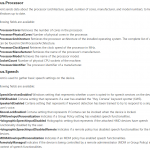New Mozilla Browser Blocks Tracking
by Wendy Davis, Staff Writer @wendyndavis, November 17, 2016
![]()
Mozilla today launched a new mobile browser, Firefox Focus, that blocks third-party trackers by default.
“We live in an age where too many users have lost trust and lack meaningful controls over their digital lives,” Mozilla writes in a post announcing the new browser, which is available for iPhones and iPads. “For some users, it seems as though your web activities can follow you everywhere — across devices, across accounts.”
The company adds: “You don’t need to change privacy or cookie settings. You can browse with peace of mind, feeling confident in the knowledge that you can instantly erase your sessions with a single tap — no menus needed.”
The move comes one year after Mozilla released a tool that enables Firefox users to block third-party ads and prevent data collection by ad networks, analytics companies and social widgets such as Facebook’s “like” button. That tool, however, is only available to people who proactively select Firefox’s “private browsing” mode to navigate the Web.
Several years ago, Mozilla said it would develop a version of Firefox for desktop and laptop users that would block tracking cookies by default. But the company scaled back those plans after the ad industry campaigned against the initiative.
Since then other companies, including Apple, have beefed up tools that help users to avoid tracking. Apple’s newest operating system, iOS10, prevents ad networks and other third parties from using iPhones’ and iPads’ advertising identifiers — unique alphanumeric strings — to track users who turn on their devices’ “limit ad tracking” setting.
For its part, Mozilla is promoting its new browser as both privacy-friendly and fast.
“You may be looking for information that in certain situations is sensitive — searches for engagement rings, flights to Las Vegas or expensive cigars, for example,” the company writes. “And sometimes you just want a super simple, super fast Web experience — no tabs, no menus, no pop-ups.”
MediaPost.com: Search Marketing Daily
(87)












